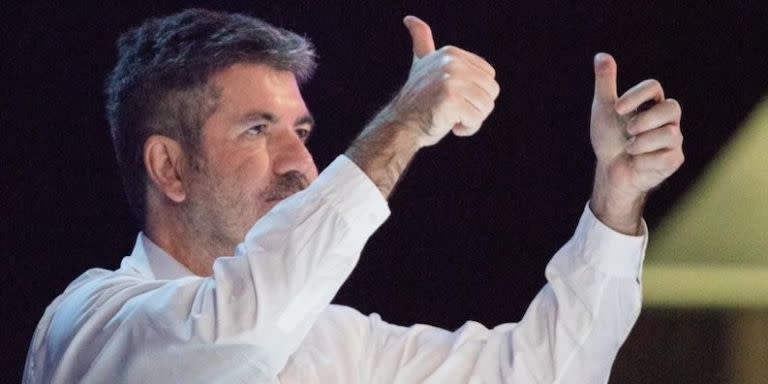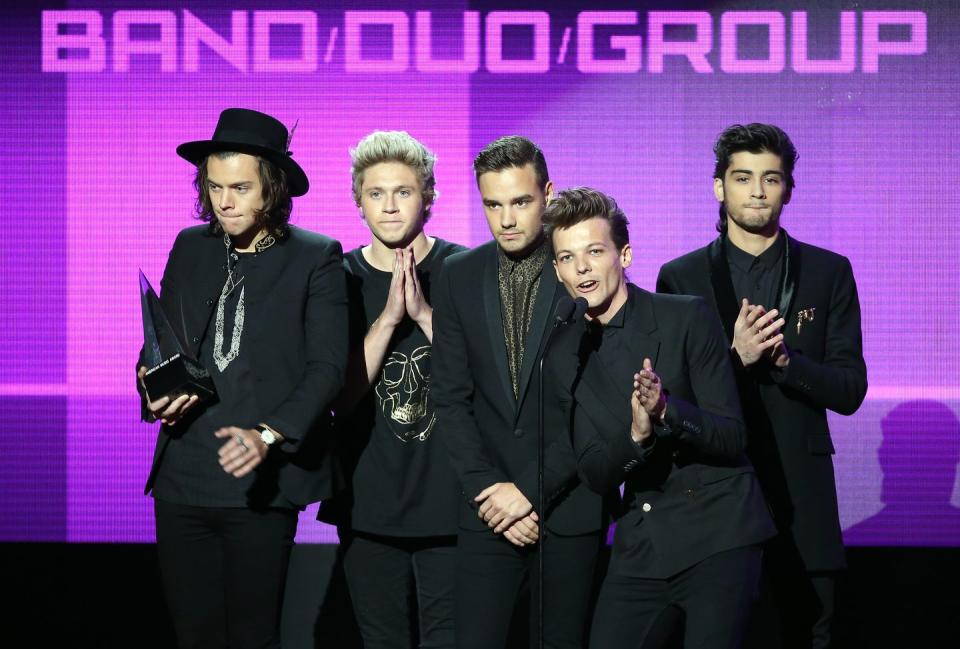What The X Factor's ratings really mean

It's official: The X Factor isn't going anywhere. But while recent ratings and media coverage has been painting a picture of a failing show, one that's falling behind the times and losing viewers left, right and centre, how accurate is that image? Let's take a dive.
We're currently 15-series deep. The ITV talent show format first hit our screens in 2004, with the judging seats occupied by bossman Simon Cowell, Sharon Osbourne and Louis Walsh.

Series one pulled in an average of 7.4 million viewers per episode, with 9.96 million for the live final which aired December 11 of that year, crowning Steve Brookstein as the first ever winner.
By comparison, the very first series of Strictly Come Dancing, which kick-started in the very same year, only in May, had a series average of 6.45 million, which increased to 9.28 million viewers for the finale.

Unsurprisingly, X Factor's audience began to grow each year, with ratings peaking in series seven with a UK average of 14.13 million. This was the year that gave us Matt Cardle, Cher Lloyd, Rebecca Ferguson and, of course, One Direction.
Joining Cowell in the hot seats that year were Dannii Minogue, Louis Walsh and Cheryl (then with the surname Cole), who actually missed some auditions and the bootcamp round due to her struggle with malaria.

Ratings have slowly been declining, year-on-year, since the success of that particular series, with 2017's offering attracting an average of 6.52 million viewers across its 28 episodes.
Which brings us up to the present. The X Factor has cleverly avoided a direct clash of the Saturday-night reality titans, airing at the later time of 8.35pm, just as Strictly ends. The BBC dance show has since been proudly shouting about its ratings successes, while things don't look so bright on the other side.
The X Factor this year had its lowest launch-show audience since it started 14 years ago and, most recently, made headlines for its disastrous technical issues. Approximately 3.7 million viewers tuned in for that particular episode, which saw its public vote cancelled, marking the lowest ratings of the series thus far.

And yet, Simon Cowell revealed this week (November 14) that ITV is planning to renew the show all the way until 2022. That's another three years. Why? Well, things might not be as bad as they appear on the surface.
Delve a little deeper into 2018's debut episode ratings, for example, and you'll find that, despite bringing in the lowest first episode audience since X Factor time began, it was still the most-watched Saturday night TV show of the night.

And that trend has continued throughout the series. Week-on-week, the talent show remains the most-watched programme on ITV on a Saturday and Sunday night.
Where Simon is concerned, money plays an important role, too. He is a hugely successful businessman after all, and the long and short of it is, The X Factor still brings in the bacon.
"It makes a lot of money," the Syco owner told The Sun of the show's renewal. "We're losing people now but fortunately the young audience has actually grown this year and all the advertisers and the sponsors want that income on a Saturday."

Yep, therein lies the other overlooked factor: audiences may be dropping off, but younger people are still tuning in.
The format is still the most-watched programme of the day it airs for 16-34-year-old audiences most weeks, and it's becoming increasingly popular on catch-up, mobile and online – something that isn't always taken into consideration when looking at traditional rating figures.
In fact, an ITV spokesperson confirmed to Digital Spy that The X Factor has been "the biggest Saturday night show for 16-34s this autumn".

For this age bracket, The X Factor is averaging 1.3 million and a 42 per cent share, while Strictly Come Dancing is averaging 1.1 million and a 37 per cent share. So although they are falling behind in weekly ratings comparisons, ITV are appealing to a younger demographic whose TV habits are a little different.
Host Dermot O'Leary has touched on this, too, recently explaining that he's met fans of the show who choose to watch solely on YouTube. (X Factor's channel currently boasts upwards of 5.5 billion views, by the way.)

"People can get it bite-sized, we have to evolve the way we make it, to follow how people at home are viewing it," he told The Sun's Fabulous magazine. "The worst thing we can do is wring our hands. We just need to keep to our nerve and not worry too much. I don't think any other show delivers what we deliver or creates stars the way we do."
With all of the overhauls made to this series, it will be interesting to see whether more changes will be in store from next year on – particularly if they're cottoning on to who their core audience is, and how they're consuming it.
The X Factor airs on ITV on Saturday and Sunday nights.
Want up-to-the-minute entertainment news and features? Just hit 'Like' on our Digital Spy Facebook page and 'Follow' on our @digitalspy Instagram and Twitter account.
('You Might Also Like',)

 Yahoo News
Yahoo News 
